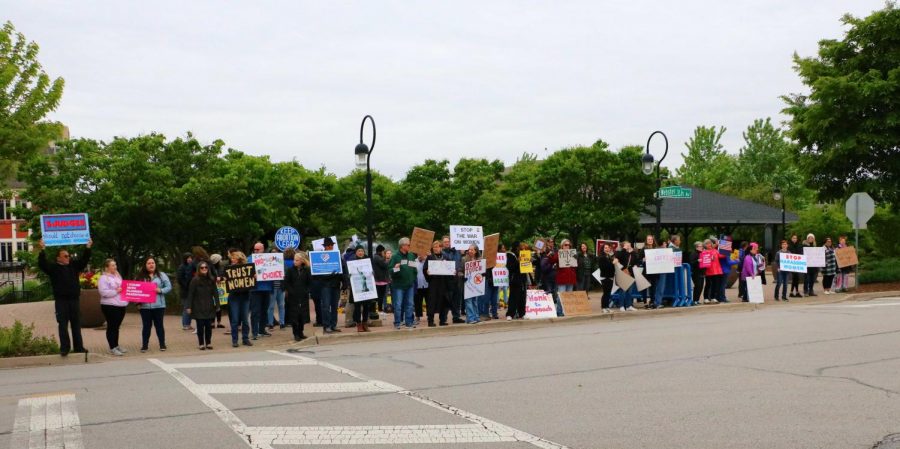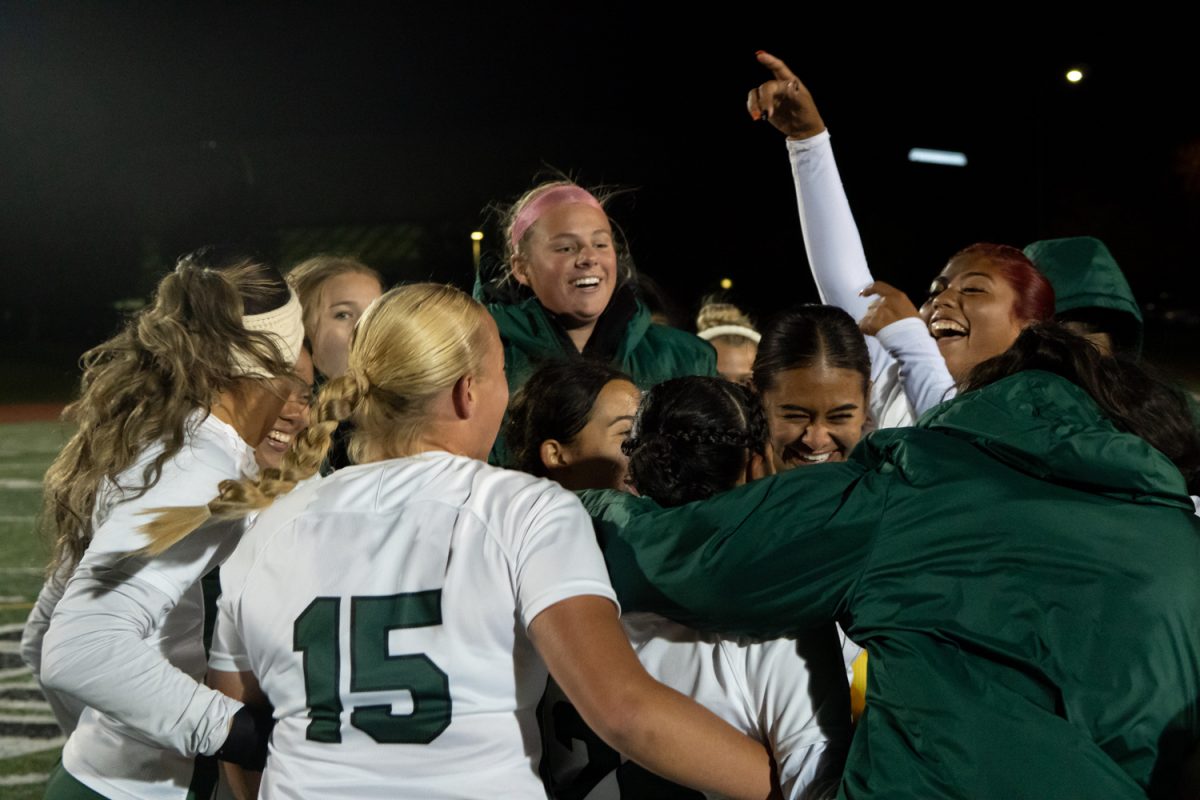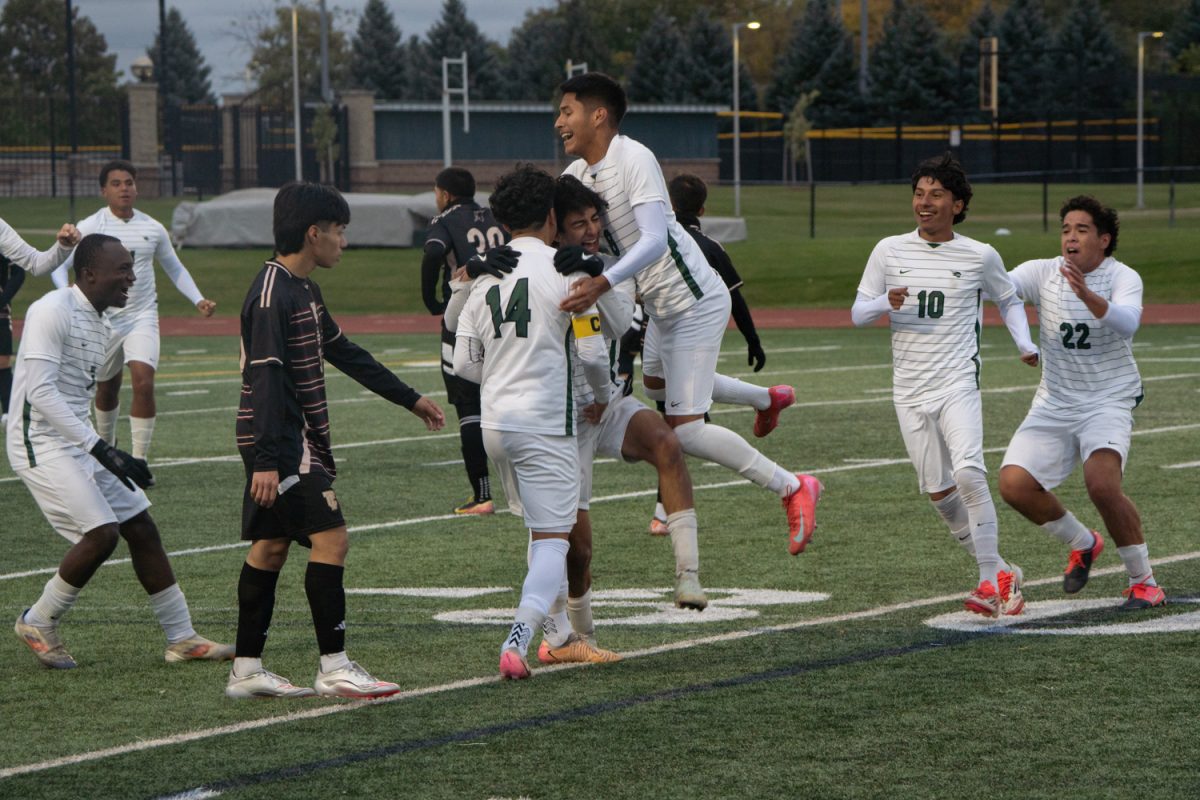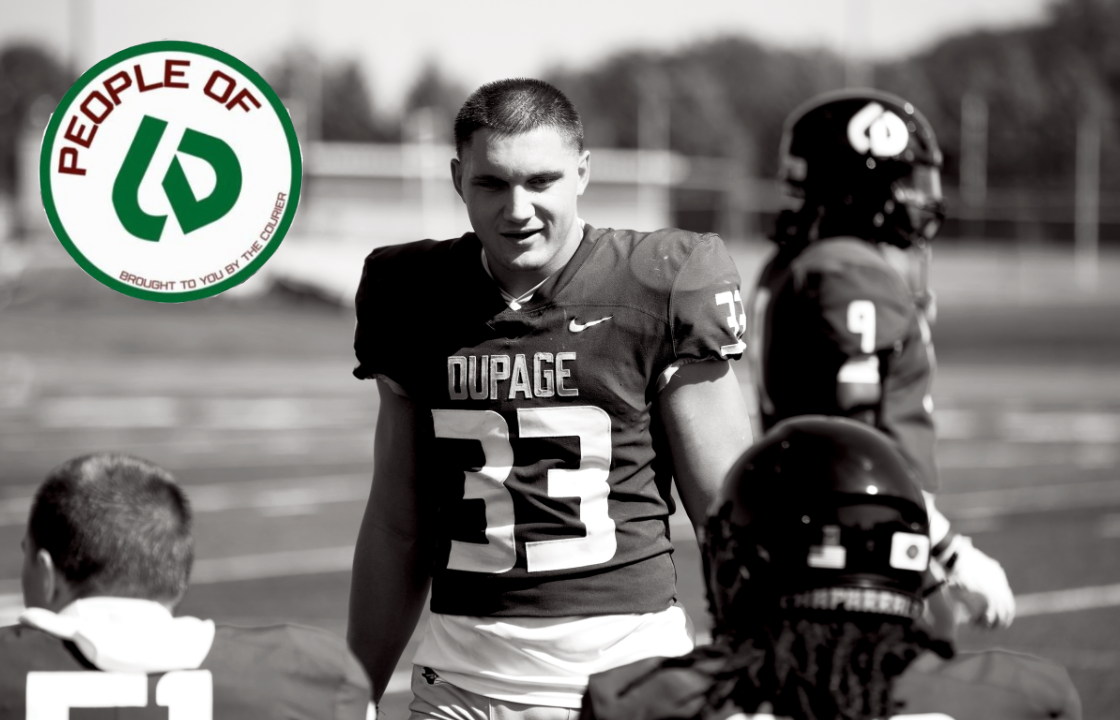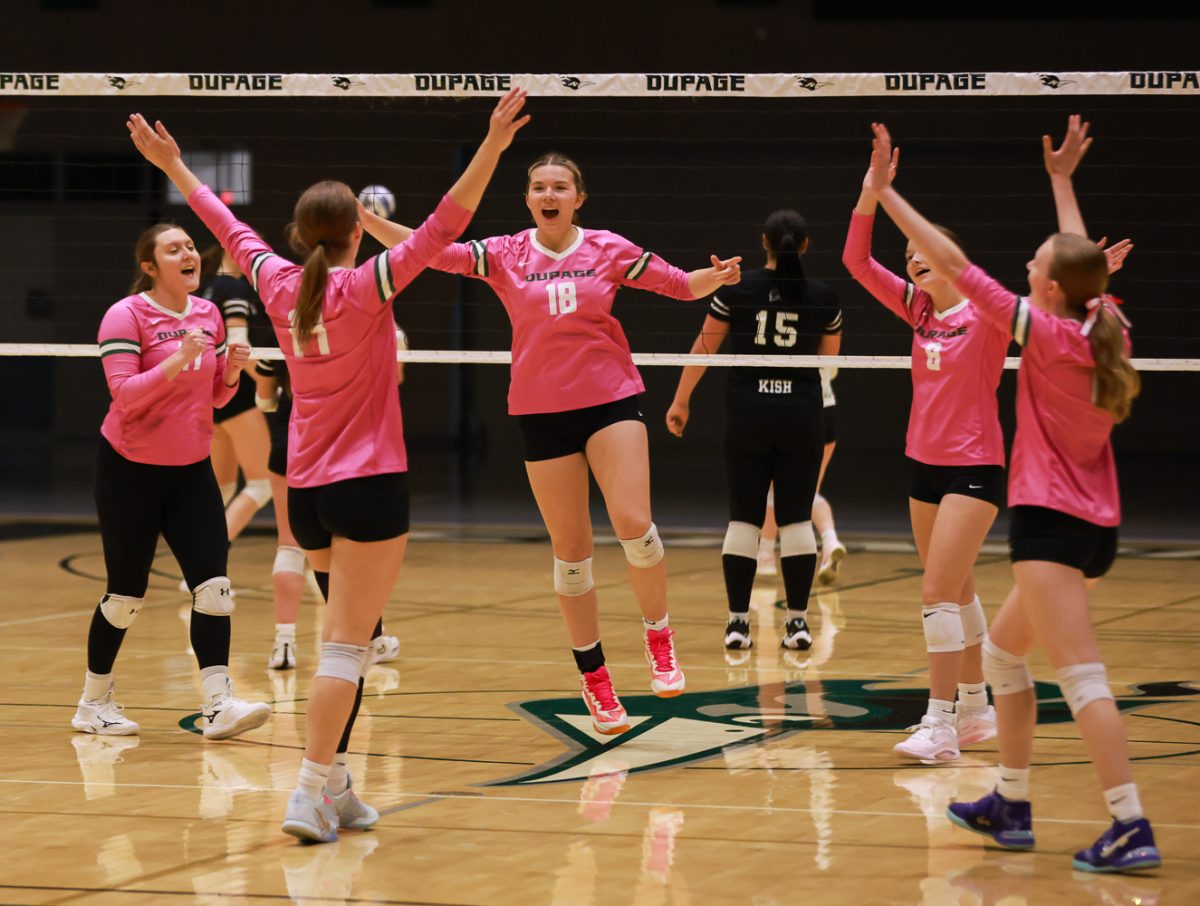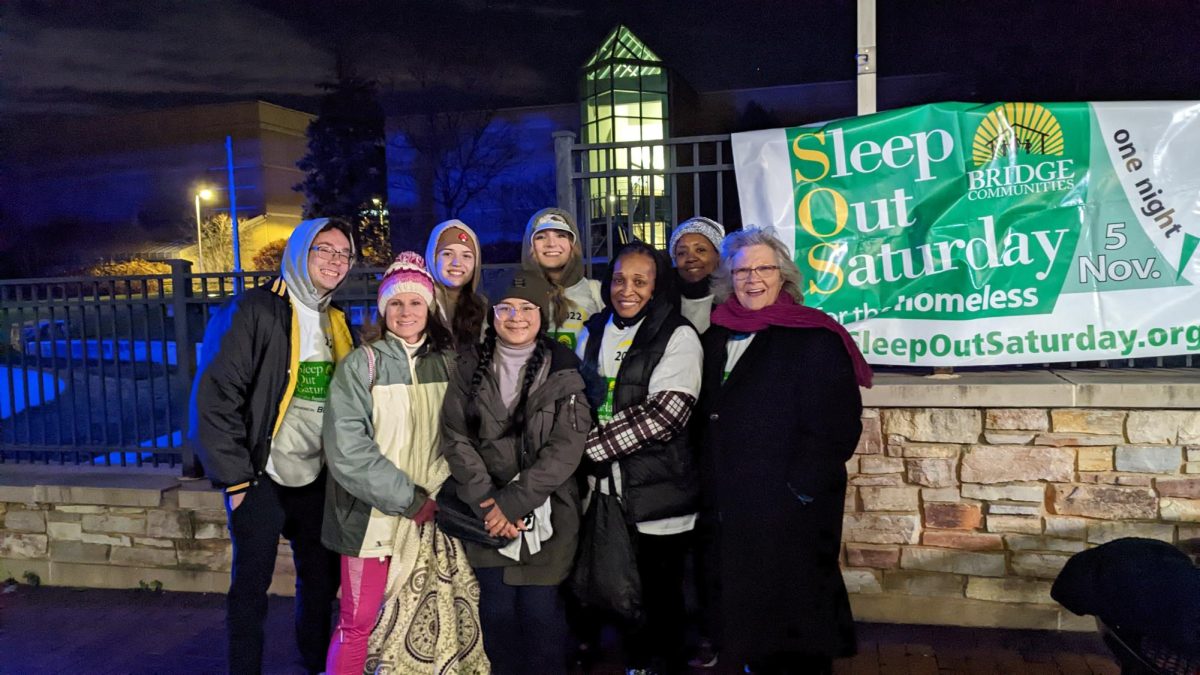#StopTheBans Rally in Downtown Naperville
May 28, 2019
“Who’s body? Our body! Who’s choice? Our choice!” Near Riverwalk Park in Downtown Naperville, a crowd of passionate individuals made their voices heard.
According to abortion rights protester Cindy Mundell, the repercussions of making abortions illegal are “multigenerational.” In 1941, Mundell’s grandmother was forced to recieve a “back-alley abortion” and died because of it. Her three children, including Mundell’s mother, were separated and subsequently sent to live with distant relatives and even spent time in foster care.
“Abortion doesn’t just affect the exact generation, it was passed down to me,” Mundell said. My mother was pretty unstable because of her upbringing. She never learned to be a mother. She didn’t know how to be a mother.”
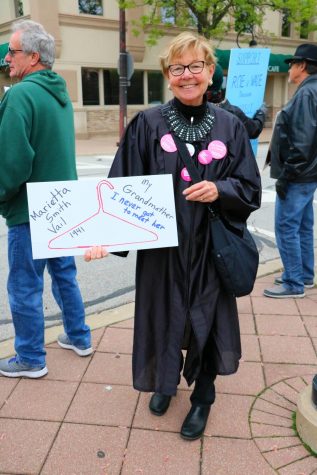
Dozens of Illinois residents joined together on a bleak evening to protest anti-abortion laws. The protest, which took place on May 21, was part of the nationwide #StopTheBans rallies in response to a recent bill signed into law in Alabama. The law bans almost all forms of abortion in the state and is scheduled to go into effect in six months. Alabama is not the only state proposing this legislation.
Alabama follows the lead of states such as Georgia and Texas, where punitive laws have been implemented for those who seek out abortion. Georgia’s “Heartbeat” bill, signed into law by Gov. Brian Kemp, could ban abortions once a fetal heartbeat is detected, which can be as early as six weeks. A bill negotiated earlier this year in Texas would criminalize the procedure and would even make it possible for women to be sentenced to the death penalty for receiving an abortion.
The Alabama legislation keeps abortion legal only if the mother’s life is at risk. The law makes no exceptions for cases of rape and incest and mandates any doctor who performs an abortion under these circumstances could be sentenced to up to 99 years in prison.
The bill, which was signed into law by Gov. Kay Ivey, is part of an effort to overturn Roe v. Wade, which established the parameters for legal abortions more than 40 years ago. Mundell said upholding the landmark decision made by the Supreme Court in 1973 is important because women should have the right to choose what happens to their own bodies.
“I totally support a woman’s choice,” Mundell said. “Her body, her uterus, keep your mitts off. Either that or we’ll start regulating men.”
Mundell also stated women who support abortion rights can control the future direction of legislation by voting in the upcoming 2020 presidential election.
“Women are the majority,” she said. “If we all vote, we will win.”
College of DuPage alumnus Steve Ferrin hoped to draw attention to the seriousness of the issue by attending the rally. Ferrin believes men should not make decisions for women regarding their bodies.
“You know, down in Alabama, 25 men basically made a decision for how many millions of women in our country,” he stated. “It’s ridiculous.”
Ferrin, whom has worked with young survivors of incest and sexual assault, believes these women should not be forced to deliver a child that results from these atrocities. He also highlighted the mental health problems anti-abortion laws could lead to for women in these situations.
“I worked with adolescents for many years in an alternative school with some serious emotional problems,” Ferrin said. “They’ve been either sexually assaulted or in some way a victim of incest. For people to start saying that these children should have to have the child…and I don’t know anybody that’s pro-abortion, so that, you know…I am pro-life, but I’m also pro-rights for people.”
After a few minutes of demonstrating, protestors cheered as a group of high school students came to join them. Students from Glenbrook North High School drove from Northbrook to Naperville.
One of those students, Maya Horwitch, said there is an impact in young people coming to these rallies to show their support.
“We’re all just very passionate students,” Horwitch said. “We care a lot about the recent laws that were just put in place, and we think that every voice counts, especially coming from such young people. I think it really makes things a lot more powerful and makes such a greater impact in society, and I think whenever there’s an opportunity to take a stand and voice your opinion you’ve got to do it.”
Another student, Ilana Silver, agreed change comes in masses.
“If somebody passing by sees a group of people all rallied together over a common issue it really does make a powerful impact on you,” Silver said. “I think it’s great to come together.”
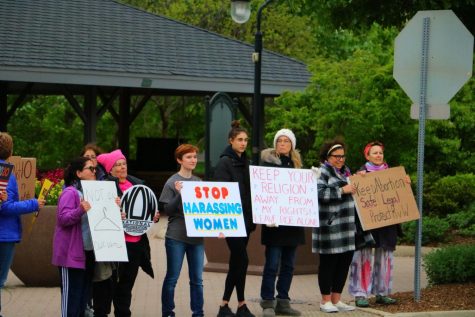
Sandy Alexander has been fighting for a woman’s right to choose for a long time.
“I don’t think we should have to re-litigate abortion rights in this country,” Alexander said. “Women need to have the right to control their own bodies, to decide when they are going to have a family. That decision has so many repercussions for a woman’s life, and I don’t think that legislators should be making decisions about what we do with our bodies.”



